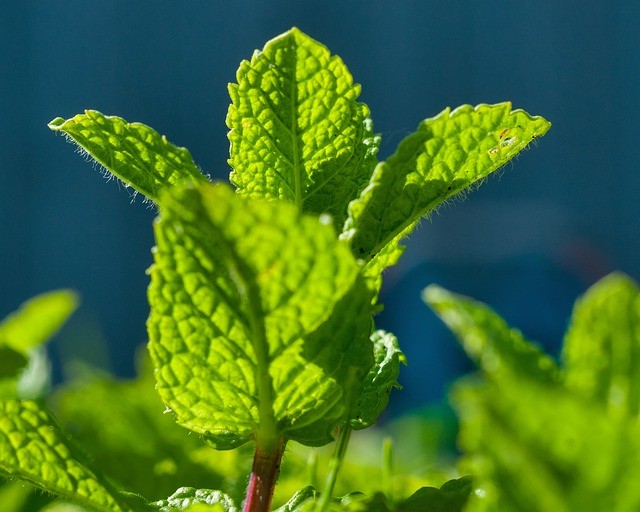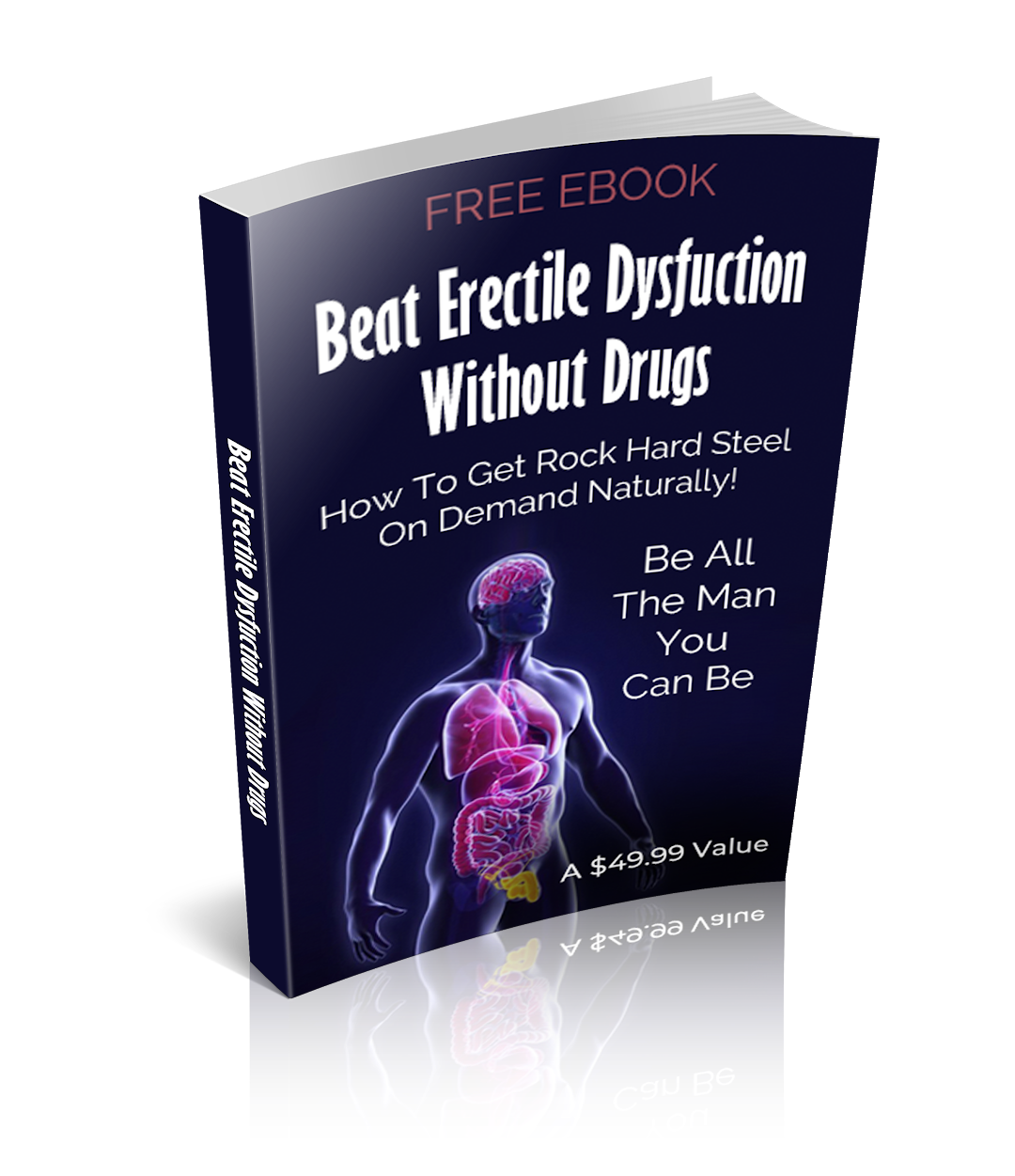(Guest Post, written by David Jaynes)
Mint tea might help you warm up in winter or sooth
a sore throat when you’re sick, but it might not be
worth the pain.
![]()
Mint and testosterone have a bit of a chequered past, with studies indicating that consuming mint reduces men’s testosterone levels.
This article is going to give you the rundown on what the research says about mint and testosterone, and why it might be worth avoiding for your T levels, your balls, your fertility, and your sex life.
Mint, Spearmint, Peppermint & Testosterone
First, lets clarify what we’re talking about. Peppermint, spearmint, apple mint, ginger mint, chocolate mint — all are part of the mentha family.
For the sake of concision, we’re going to just call all of these types of mint mint, because they all cause the following problems to one degree or another.
It’s also worth noting that mint and its mentha family buddies aren’t just found in herbal tea. Toothpaste, gum, deodorants, air purifiers, cooking, cocktails — mint is found in lots of places.
So if you’re looking to reduce your mint intake, remember to look closely at the products that you interact with every day.
Now that’s out of the way, let’s look at what the science says about this.
Mint and Testosterone – What The Science Says
One of the first studies that looked at this issue was published back in 2004 in Urology by three researchers from the Suleyman Demirel University Medical School in Turkey.

FREE Testosterone Ebook!
+ Hormone Boosting Tips Delivered to your Inbox
Learn 3 Unusual Tricks I Used to Spike My Testosterone Levels By More Than 300%.
They looked at the effects of peppermint tea on rats, measuring testosterone, follicle stimulating hormone (FSH), and luteinizing hormone (LH) levels.
The researchers took 48 rats and divided them into four groups, one control getting water and the other three receiving progressively higher doses of mint (either spearmint or peppermint).
What they found was that the control groups produced significantly more FSH and LH while levels of testosterone plummeted. In the lowest-dose group of peppermint, levels fell 23%. Spearmint dropped testosterone levels by 51%, and that wasn’t even at the highest dose.
The researchers concluded that, despite the benefits of mint tea, we should be aware of the “toxic effects” that it can have on testosterone (source).
And this isn’t the only study…
Three years later, the same researchers published a second study in Phytotherapy Research and reached a similar conclusion. This time, they looked at levels of testosterone in women suffering from hirsutism.
They looked at 21 women, 12 with polycystic ovary syndrome and 9 with idiopathic hirsutism. They had them drink spearmint tea twice a day for 5 days at a specific point in their menstrual cycles.
What they found confirmed earlier studies. Their free testosterone levels dropped and their FSH and LH levels rose significantly.
They also found increases in Estradiol, the primary female sex hormone. And while they concluded that more studies needs to be done, it’s still pretty damning evidence that mint makes T levels go down (source).
It’s worth noting here that men’s and women’s hormones, while they do different things and are present in different amounts, are actually the same stuff. Despite their names, men produce LH, FSH, and oestrogen — they just do it in smaller volumes than women.
Conversely, women do produce testosterone, they just produce less of it.
Mint and Testicular Atrophy
Now as you might know, testosterone and your balls are pretty closely related…
And in general, the lower your testosterone, the more testicular atrophy you’ll experience. Therefore, the more mint you consume, the worse off your balls are going to be.
In fact, in 2008, a group of Indian researchers confirmed this in a study published in Food and Chemical Toxicology.
They looked at rats and the “probable correlation between oxidative stress in hypothalamic region and antiandrogenic action of [spearmint] on rats”.
In other words, does giving rats spearmint correlate to increased oxidative stress in the hypothalamus and decreased testosterone levels? And if so, why?
By looking at enzyme activity levels, the researchers were able to track oxidative stress levels. As the spearmint doses went up, enzyme activity went down and thus, the oxidative stress must have increased.
Second, their analysis found that:
- Testicular enzyme activity decreased
- Testosterone protein activity decreased
The researchers concluded that spearmint does cause a decrease in testosterone by causing oxidative stress in the hypothalamus which in turn causes LH and FSH production to decrease.
Then, as the body becomes aware that the hormones are out of whack, it decreases testosterone production by reducing the supply of enzymes and proteins needed to build testosterone molecules, resulting in an overall net decrease of free T in your system (source).
It’s like your body is building a skyscraper, but someone at the head office needs to stop the project…
Instead of going to to the worksite and closing things down, they just call the concrete plant and the steel plant and tell them to stop making deliveries. Without new building materials, production grinds to a halt.
Conclusion? Mint can be a real ball buster.
Mint and Fertility
Of course, you can’t decrease your testosterone levels and cause your balls to shrivel up and induce oxidative stress on your brain and not expect at least some impact on fertility.
Which is exactly why in 2014, researchers from Iran collaborated to publish a study in the Avicenna journal of phytomedicine about male fertility in rats and mint (they used spearmint).
They got male rates and split them into four groups. One group received no spearmint (control) and the rest received either 10, 20, or 40 mg/kg every day for 45 days.
This allowed the research to make dose-dependent conclusions.
After the 45 days, they looked at sperm health based on a variety of factors, including:
- Sperm count
- Sperm motility (progressive and immotility rates)
- Serum testosterone concentration
What they found was that spearmint did have a negative impact on virtually every fertility metric. Sperm count decreased. Fast motility decreased. Immotility increased. Serum testosterone decreased.
Now to be fair, researchers didn’t find these changes in statistically significant amounts. Plus, there was no difference in the number of offspring between the control and experimental groups of rats; however, their doses were relatively low (source).
With that in mind, small doses of mint probably won’t affect your sperm too terribly. But at higher doses you could run into serious problems.
And remember: this is on top of testicular atrophy and low T levels, both of which WILL cause infertility.
So while the mint might not have direct effect, it’s definitely not helping things along. If you’re looking to pro-create, I’d say it’s best to keep off the mint, especially in high doses.
Mint and Erectile Dysfunction
Now, onto the matter at hand. With all of this information that science has supplied, how much softer or less frequent is your wood going to be?
Unfortunately, there hasn’t been any concrete research on mint and ED. There’s no smoking gun.
But think about this:
- Low testosterone contributes in a big ways to erectile dysfunction.
- Oxidative stress contributes to erectile dysfunction.
- Sperm health is a bit of a ‘canary in the coalmine’ for testicular health and your wood.
- Testicular atrophy and ED often go together.
So with all this in mind, do you think that mint is HELPING your sex life?
I think we can confidently say: ‘probably not’.
Mint and Testosterone – Conclusion
What does all this mean?
Does it meant that we can safely chew gum and drink mojitos without any consequences?
Does it mean we should put mint up there with plutonium on our list of ‘don’t touch it with a ten foot pole’?
Does it mean we should wait for science to tell us that mint is definitely good or definitely bad?
It’s up to you.
To be clear, there is currently no scientific evidence, correlative or otherwise, linking mint to erectile dysfunction.
However, there is LOTS of evidence that links a number of causal factors for ED and low testosterone to increasing mint intake.
Basically, mint creates an environment that makes it difficult to get hard, easy to stay soft, and difficult to maintain healthy testosterone production.
My recommendation?
Don’t develop a mint tea habit. Don’t chew gum all the time and don’t race through altoids.
But don’t become a mint-nazi.
The odd cup of tea when you’re under the weather or the odd sprig of mint in a summer salad isn’t going to kill you and isn’t going to induce ED.
There are other more important factors when it comes to your testosterone levels and your ED that will have a much bigger impact.
So live a little!
After all, who doesn’t love a mojito on a hot beach?

